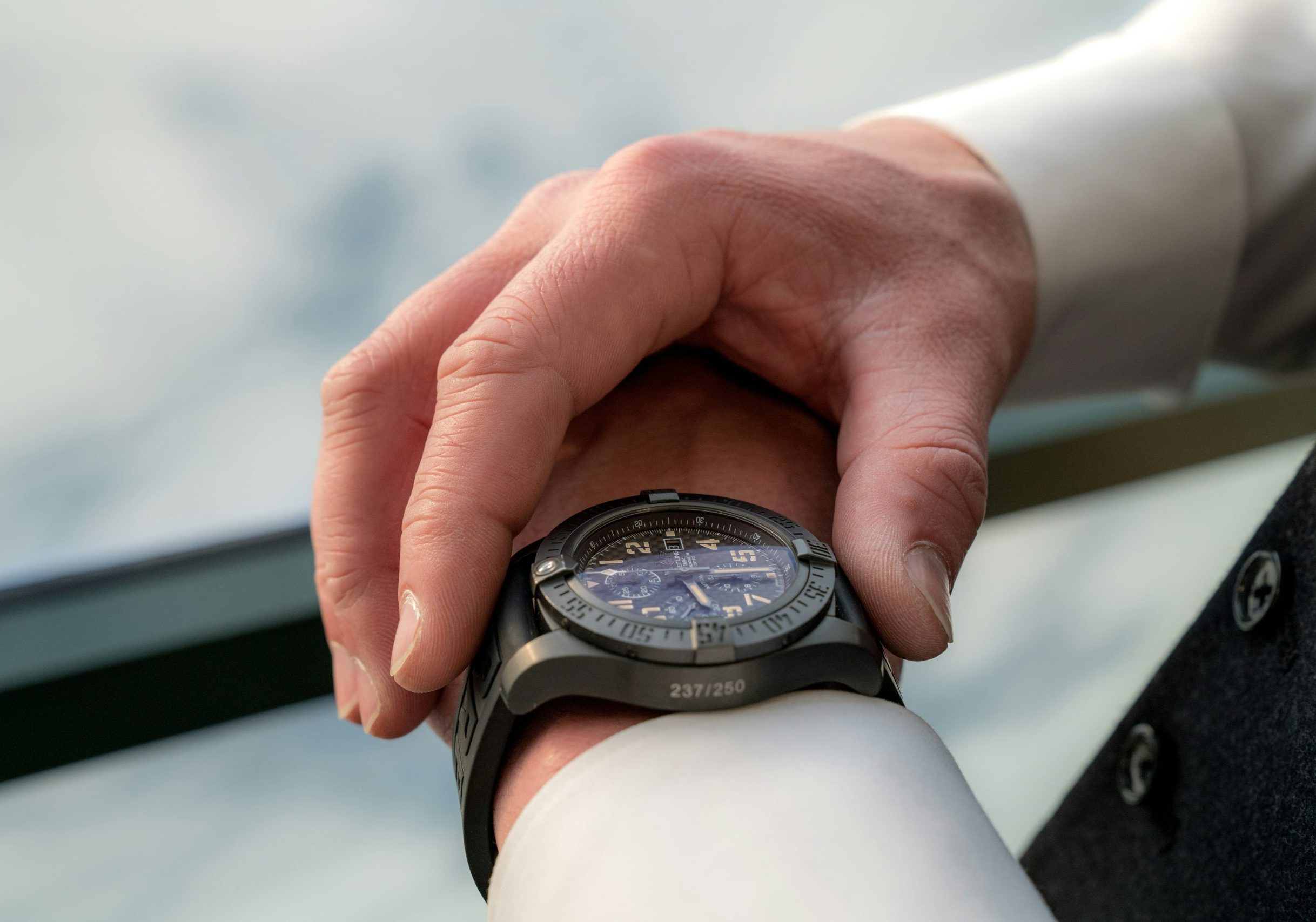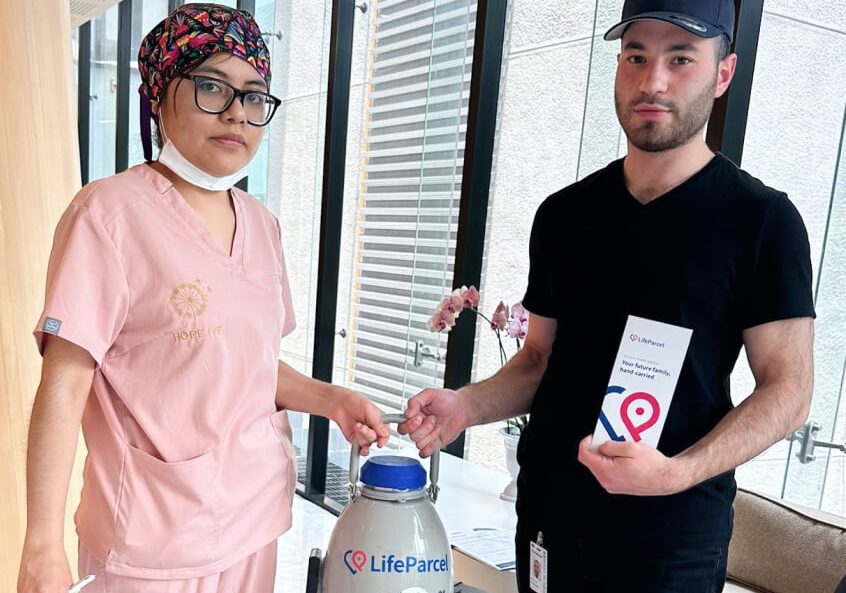When you’re ready to transport your fertility materials, you might consider using a standard courier service like FedEx or UPS. While these services excel at delivering packages, fertility materials require specialized handling that goes far beyond standard shipping capabilities.
Understanding IVF courier risks can help you make an informed decision about protecting your precious genetic material. Let’s explore why standard shipping services simply aren’t designed for the unique requirements of fertility material transport.
The temperature control challenge
Fertility materials must remain at exactly -196°C throughout transport. Standard shipping services offer limited temperature monitoring and can’t guarantee consistent ultra-low temperatures needed for genetic material viability.
The risks:
- Temperature fluctuations in cargo holds or delivery trucks
- Extended delays without proper temperature maintenance
- Limited monitoring means you might not know about temperature breaches until it’s too late
- Standard dry ice shipping doesn’t provide the precision needed for fertility materials
The LifeParcel difference: Our biomedical cryoshippers maintain constant -196°C temperatures with 24/7 real-time monitoring. Each container is tested before every mission and can maintain optimal conditions for up to 21 days—well beyond typical transport times.
Multiple handler exposure
Standard shipping means your materials pass through numerous handlers, sorting facilities, and transfer points. Each handoff increases the risk of misplacement, delays, or mishandling.
The risks:
- Materials getting lost in sorting facilities
- Rough handling by untrained personnel
- Delays at distribution centers
- Packages being separated from temperature-controlled environments
How LifeParcel eliminates this risk: We maintain an unbroken chain of custody from pickup to delivery. Your materials never leave our courier’s hands, eliminating the risks associated with multiple handlers and ensuring continuous, specialized care.

X-Ray exposure
Standard shipping routinely exposes packages to X-ray scanning at multiple checkpoints. While the effects of X-ray exposure on fertility materials aren’t fully understood, many fertility specialists recommend avoiding any unnecessary radiation exposure.
The risks:
- Potential damage to delicate genetic material
- Unknown long-term effects on specimen viability
- Multiple exposures at various security checkpoints
- No way to track or document radiation exposure levels
LifeParcel’s protection: We guarantee zero X-ray exposure through special permits and protocols that allow our couriers to bypass security scanners while maintaining full compliance with transportation regulations.
Customs and regulatory complications
International fertility material transport involves complex regulations that standard couriers aren’t equipped to handle. Generic shipping services lack the specialized knowledge needed for smooth customs clearance.
The risks
- Extended delays at customs checkpoints
- Improper documentation leading to shipment holds
- Materials being subjected to inappropriate inspections
- Regulatory violations that could compromise your shipment
Our regulatory expertise: With over 15 years of experience in international fertility transport across 32+ countries, we understand the specific requirements for each destination. We pre-clear shipments when possible and maintain relationships that facilitate smooth customs processes.
Limited emergency response
When problems arise during standard shipping, you’re often left to navigate airline customer service or generic call centers. There’s no specialized support for fertility material emergencies.
The risks:
- Long wait times for customer service
- Representatives who don’t understand fertility material requirements
- Limited ability to implement emergency protocols
- No contingency planning for specialized cargo
LifeParcel’s emergency protocols: Our team is available 24/7 with specialized expertise in fertility material transport. When complications arise, we have established protocols and relationships to resolve issues quickly while maintaining optimal conditions for your materials.
Lack of scientific understanding
Standard courier services treat fertility materials like any other package. They lack the embryological expertise to understand the critical nature of what they’re transporting.
The risks:
- Inappropriate handling procedures
- Misunderstanding of time-sensitive requirements
- Inadequate communication with fertility clinics
- No specialized training for courier personnel
Our embryologist-led approach: As an embryologist-owned company, we understand the science behind fertility material transport. Our founder, Dr. Aharon Peretz, brings years of laboratory experience to ensure our protocols meet the highest scientific standards.
Communication and coordination gaps
Standard shipping services don’t coordinate with fertility clinics or understand the specific timing requirements for IVF procedures.
The risks:
- Poor communication between shipping service and clinics
- Timing mismatches that could affect treatment schedules
- Lack of specialized documentation required by fertility centers
- No understanding of clinic protocols and requirements
LifeParcel’s clinic coordination: We work directly with both releasing and receiving clinics, handling all coordination and ensuring seamless transfers. Our experience with 150+ clinics worldwide means we understand their specific requirements and protocols.
Making the right choice for your materials
At LifeParcel, we’ve eliminated these IVF courier risks through specialized protocols, advanced equipment, and embryologist-led expertise. With over 2,500 successful missions and zero incidents of loss or damage, we’ve proven that specialized fertility transport makes the difference.
Want to take the stress out of IVF transport? Request a quote or call us at +1-866-370-6577.





